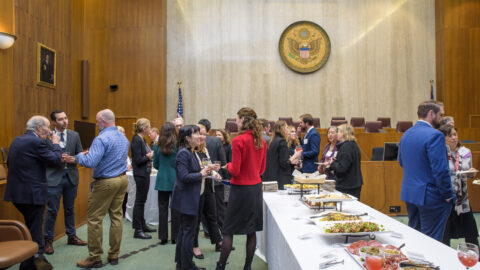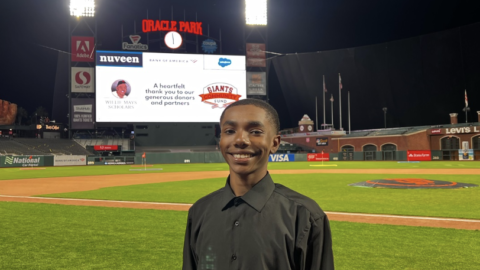
Since 1995, Disability Rights and Labor Relations Panel attorney Charles Wisch has been a member of the Lawyer Referral and Information Service (LRIS). Recently Wisch settled a case referred through LRIS. As I reviewed the case facts, along with the five figure forwarding fee check, it dawned on me that this esteemed attorney had never been profiled in the BASF Bulletin. With this brief Q&A session I remedy that oversight.
Emmy Pasternak (EP): You passed the bar in 1975. How has the legal profession and your practice changed over the past 41 years?
Charles Wisch (CW): For 20 years I practiced in large firms in various legal arenas. In 1995, I opened my own practice dedicated to representing employees in employment cases and business-related litigation.
When I was starting out, there was more opportunity for junior lawyers to get courtroom experience, including trying cases, at an earlier stage of their careers. Over time, trial practice has become much more complicated, resulting in fewer cases being tried and more resolved through mediation. I relish the entire litigation process from case analysis, through discovery, to trying both jury and nonjury cases.
EP: You recently settled a case referred to you by LRIS in 2014. What intrigued you about the case?
CW: This case immediately called out to me — a fairly low paid employee of a very large institutional employer had been completely denied any accommodation for a disability. The type of accommodation sought could have easily been provided, particularly given the size and assets of the employer. Instead, the employer refused even to discuss accommodation with her, forcing her onto unpaid leave.
We unsuccessfully attempted to negotiate a financial settlement. My client was willing to resign and accept a very modest amount, but the employer refused. At that point, we filed a lawsuit. Discovery disclosed the employer’s internal documentation admitting that it could have easily granted the very types of accommodation that my client had been seeking. That discovery also disclosed that the employer was attempting to use its refusal to accommodate to leverage a settlement of a pending workers’ compensation claim that the client had filed several years earlier.
With that information, as well as compelling video depositions of several of the employer’s managers, we were able to negotiate a much more substantial settlement than the client had been willing to accept before the lawsuit.
EP: You have been an LRIS member for a long time. What keeps you renewing your membership?
CW: I have found that LRIS often provides potential clients an opportunity to bring their claims to an attorney in instances where an attorney would not initially accept a consultation. When I sit with a potential client whose case I do not take, it still provides that person the benefit of knowing that at least they had someone listen to their concerns, which is frequently what they need. It is a nontraditional form of pro bono benefit. I enjoy the variety of cases that LRIS refers. Quite often a case appears “too small” to consider; like this case did. At this stage of my career I have the latitude to take a smaller case simply because I feel that a wrong has been done that needs correcting, and I am willing to commit the time and resources to help that client.
If you would like to become a member of the SF-Marin LRIS contact LRIS Membership Coordinator Yvonne Ng at 415-782-8951 or yng@sfbar.org. The Attorney Agreement and Panel Applications are available at www.sfbar.org/lawyerreferrals/att-join.aspx.




